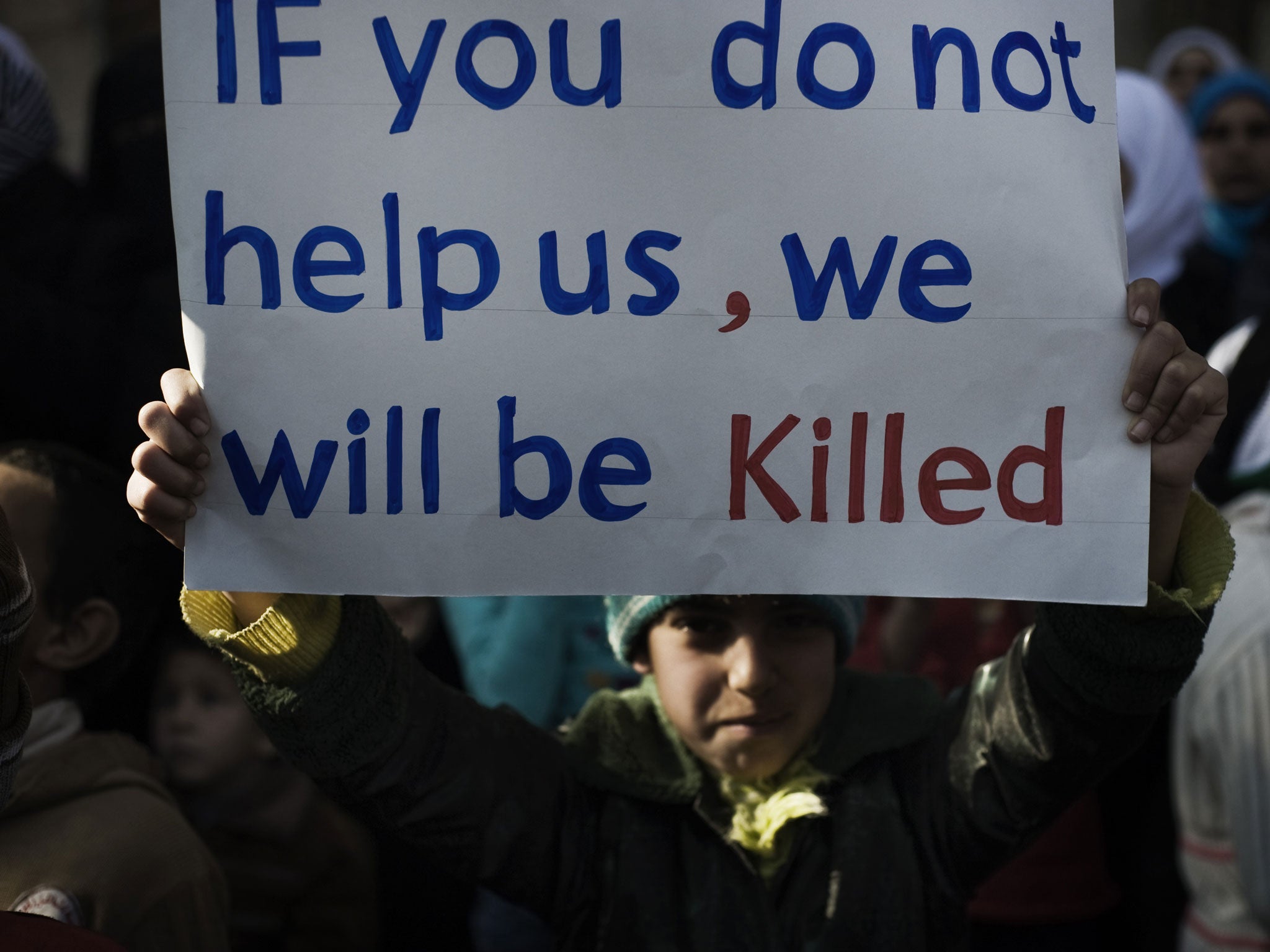UN calls for £3.2bn aid for Syria in biggest ever humanitarian appeal as civil war expected to hit 10 million people
Target for humanitarian aid at record high as Geneva predicts civil war will hit 10 million people

Your support helps us to tell the story
From reproductive rights to climate change to Big Tech, The Independent is on the ground when the story is developing. Whether it's investigating the financials of Elon Musk's pro-Trump PAC or producing our latest documentary, 'The A Word', which shines a light on the American women fighting for reproductive rights, we know how important it is to parse out the facts from the messaging.
At such a critical moment in US history, we need reporters on the ground. Your donation allows us to keep sending journalists to speak to both sides of the story.
The Independent is trusted by Americans across the entire political spectrum. And unlike many other quality news outlets, we choose not to lock Americans out of our reporting and analysis with paywalls. We believe quality journalism should be available to everyone, paid for by those who can afford it.
Your support makes all the difference.The UN has launched an appeal for £3.2bn – the largest in its history – for “urgent humanitarian aid” within Syria and for its neighbouring states, where refugees from the escalating civil war have fled.
According to the latest UN figures, more than 10 million Syrians, half the population, will need assistance over the next six months. And the UN children’s agency, Unicef, estimates four million children already require urgent humanitarian help.
The revised aid budget for the Middle East refugee crisis presents the UN with serious difficulties because the previous aid target of $1.5bn, to cover the first six months of the year, has yet to be fully met.
Although $1.2bn has now been contributed, an investigation by The Independent last month revealed that following a special aid conference held in Kuwait in January, a large shortfall in pledges from Syria’s wealthy oil-rich neighbours was creating a crisis for the UN’s World Food Programme’s efforts in refugee camps.
UN officials have admitted they may, once again, face difficulties in raising the record aid funds they are now asking for. Ertharin Cousin, executive director of the WFP, who is in London attending a global nutrition summit, told The Independent that “access to refugees” was now the main objective, given large parts of Syria are still no-go areas for relief agencies.
The Security Council is urging Syria to allow UN and other humanitarian groups into the strategic town of Qusayr, where civilians had become trapped by fighting between President Bashar al-Assad’s forces and rebel groups. The regime, which retook the town on Wednesday, had vowed to allow aid groups in to deliver food and medicine when fighting ceased.
Following the capture of Qusayr, Assad’s forces, aided by Hezbollah fighters, have directed efforts toward driving rebels from Homs and Aleppo.
The $5bn (£3.2bn) appeal was launched by the UN in Geneva. It said it had revised the scale of what was needed because of the worsening security situation. The UN’s Emergency Relief Co-ordinator, Baroness Valerie Amos, said: “Between January and April, the number of people displaced in Syria more than doubled. These are massive figures, but those figures mask a human tragedy.”
The UN now expects refugees numbers, currently at 1.5 million, to rise to 3.5 million before the end of 2013. But medium-term UN estimates say the war’s effects will eventually involve seven million Syrians within their country, and millions more who have fled over its borders.
The UN High Commissioner for Refugees, Antonio Guterres, told reporters that camps were currently receiving 7,000 new arrivals every day. “Funding Syria’s humanitarian needs is a matter not only of generosity but enlightened self-interest,” he said.
Camps in Lebanon and Jordan are housing half a million refugees. Their governments were involved in the UN appeal and have ask for $800m (£515m) to help meet the growing costs.
Subscribe to Independent Premium to bookmark this article
Want to bookmark your favourite articles and stories to read or reference later? Start your Independent Premium subscription today.
Join our commenting forum
Join thought-provoking conversations, follow other Independent readers and see their replies
Comments